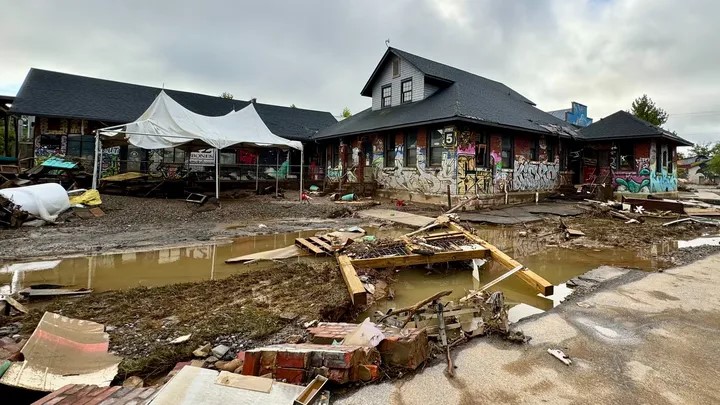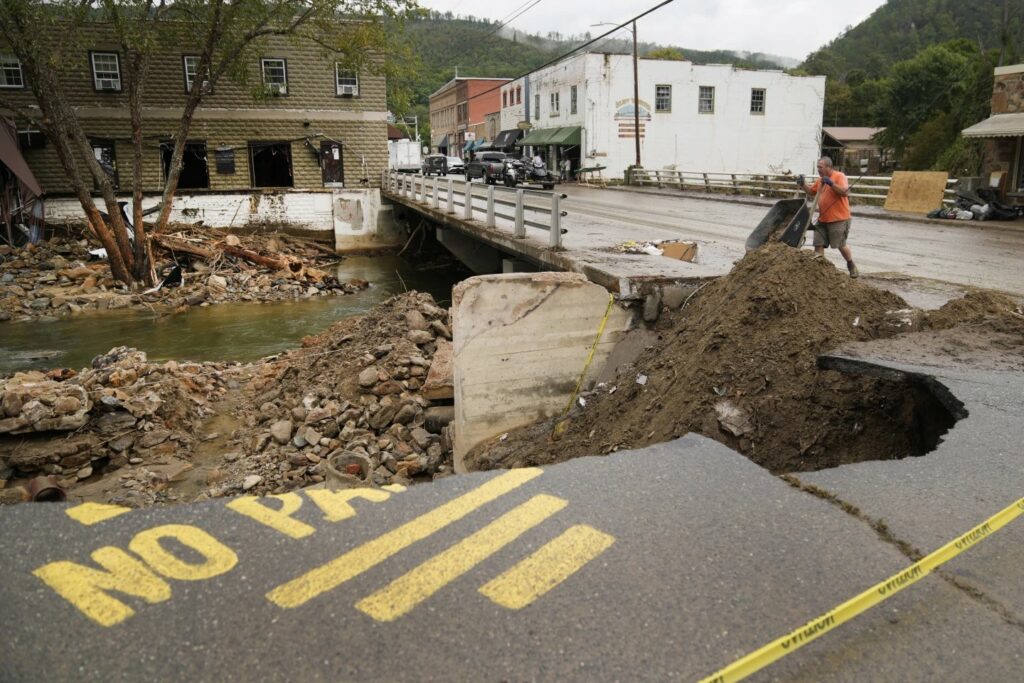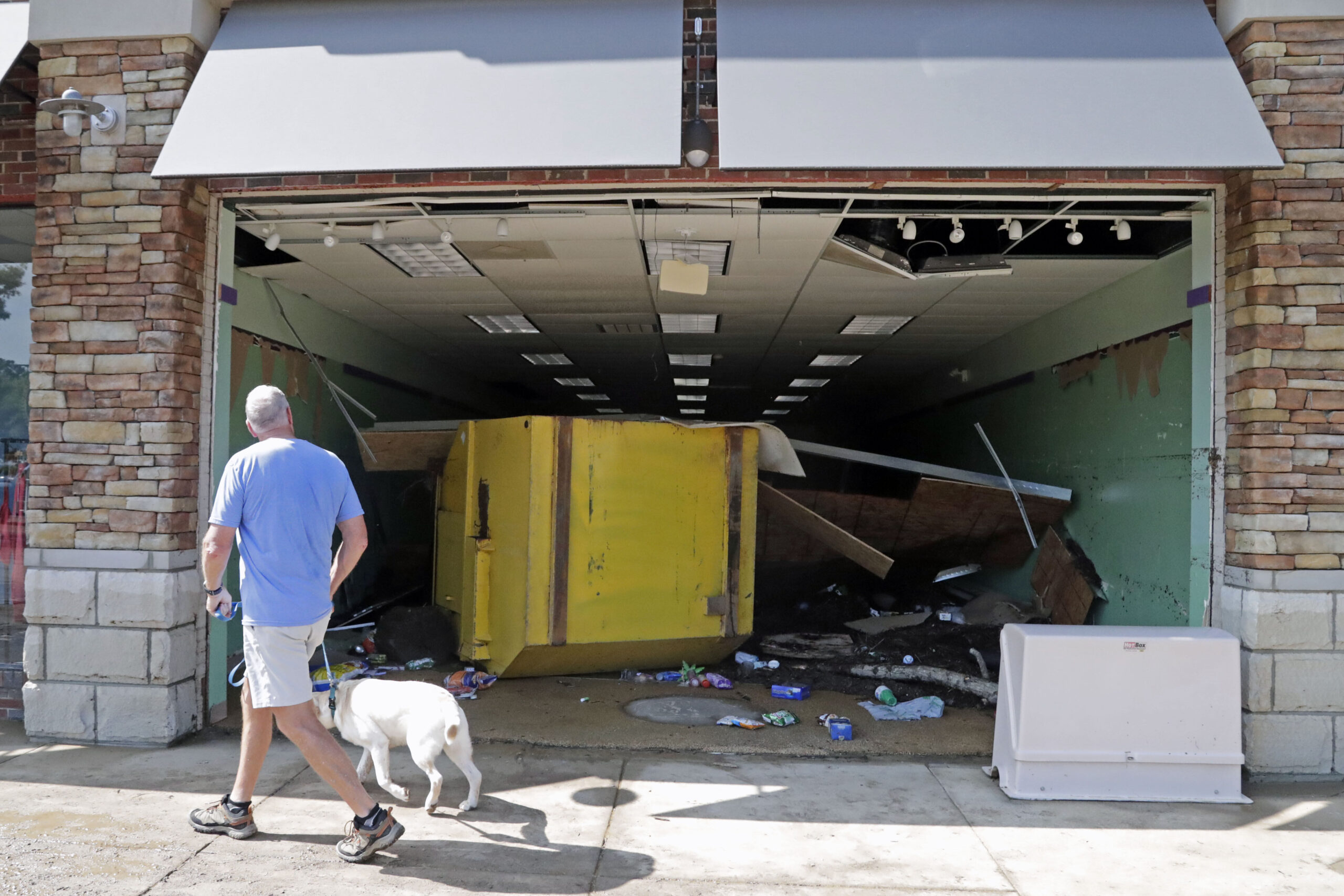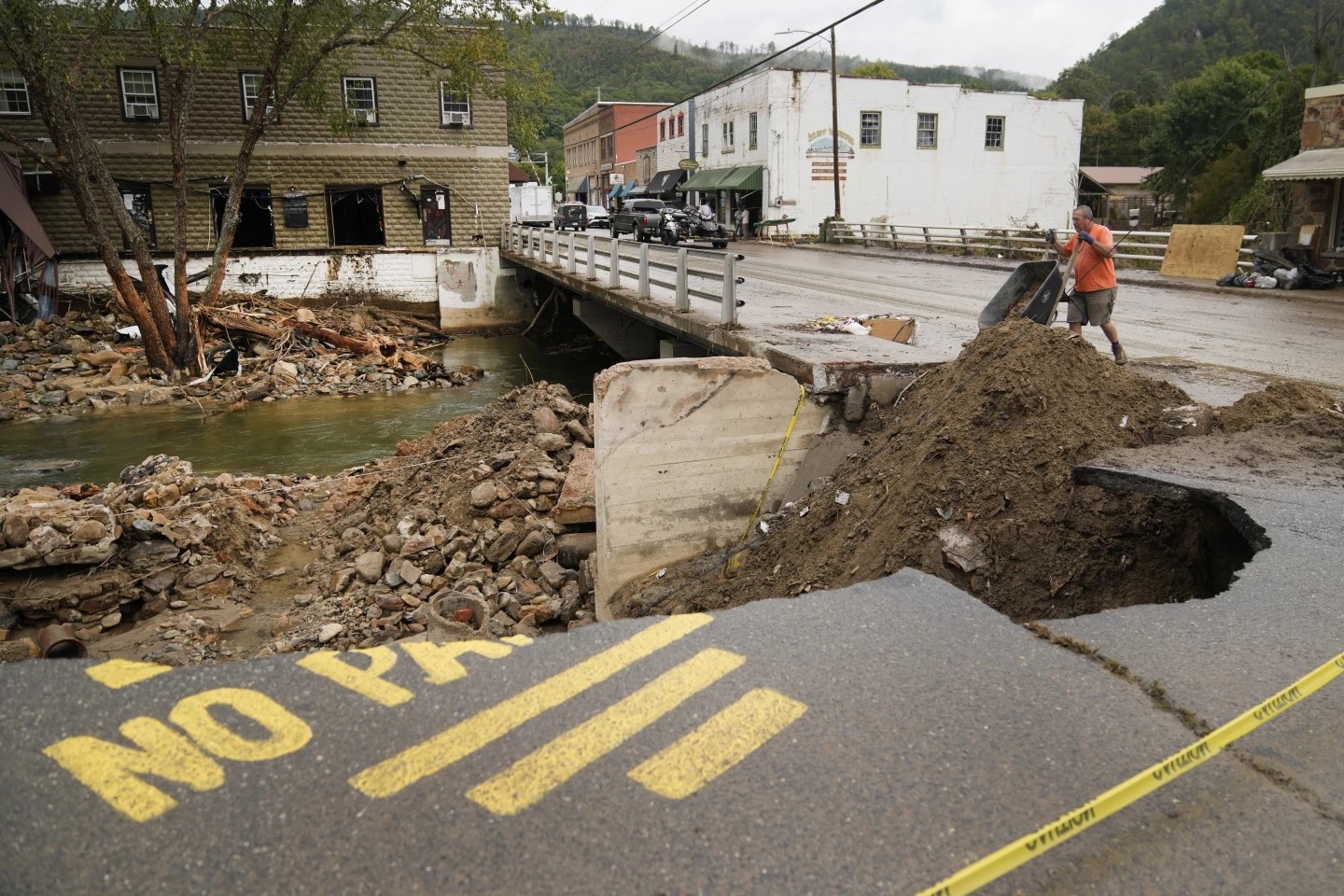To reflect on the year, Chapelboro.com is re-publishing some of the top stories that impacted and defined our community’s experience in 2024. These stories and topics affected Chapel Hill, Carrboro and the rest of our region.
The devastation caused by and reaction to Hurricane Helene represents a significant entry into 97.9 The Hill and Chapelboro.com’s list of this year’s top stories. The storm made landfall in the United States on Sept. 26, 2024, as a Category 4 and swiftly moved up from Florida. Heavy rainfall in Western North Carolina and extensive damage to communities and infrastructure triggered statewide efforts to provide assistance and relief to those affected — efforts that continue now, in December.
Joining the names of Hugo, Hazel, Florence and Fran, Helene represents another entry into North Carolina’s shared history with hurricanes. As an Atlantic coastal state, N.C. is no stranger to intense storms, but Helene’s catastrophic impact was most felt significantly further inland.
Coming from the south across the Gulf of Mexico, Helene dropped a record-breaking amount of rainfall on North Carolina, causing widespread damage from flooding and mudslides as rivers swelled and watersheds overflowed in the western part of the state. In the months since, the aftermath of Helene is still being processed, measured and reacted to.
On Sept. 25, Gov. Roy Cooper declared a state of emergency in anticipation of potential damage — a decision proved to be prudent as flash flood warnings were issued in Chapel Hill and Carrboro and reports from western North Carolina began to surface.
Hundreds of roads were closed across North Carolina, more than 100 people were killed with more unaccounted for as of reports compiled in November, with the damage and destruction described as “overwhelming” and stories both hopeful and tragic emerged from the aftermath. Water rescues and supply deliveries came side-by-side with reports of help arriving either too late or not at all.

The 12 Bones riverside location in Asheville was one of many small businesses that suffered significant damage from the floodwaters of Helene. (Photo via Liz Koh/12 Bones on GoFundMe.)
Organized efforts from Orange County and neighboring areas worked hard to send food, supplies and all available assistance to affected areas. Many local businesses began fundraising efforts, Orange County Emergency Services sent 11 EMS providers to the western part of N.C. to help with medical operations, while two emergency mangers from the county were assigned to help with disaster shelter operations in the region. Carrboro firefighters are also helping response efforts, with the local fire department deploying four personnel and a truck to Transylvania County.
“When I rode by a farm tractor company and saw mud on the roof of that building, and every unit on the front of the building covered in mud,” Orange County Sheriff Charles Blackwood said in an conversation with 97.9 The Hill’s Brighton McConnell. “I knew this was not the normal type of disaster we respond to. When I saw the look [on the sheriff’s] face of just complete despair, my heart went out to him and, immediately, I thought about what I would [feel] if Chapel Hill and Carrboro were under nine feet of water.”

Len Frisbee dumps a wheelbarrow of dirt as he helps with clean up in the aftermath of Hurricane Helene Tuesday, Oct. 1, 2024, in Hot Springs, N.C. (Photo via AP Photo/Jeff Roberson.)
Chapel Hill’s town council formally recognized officials, staff and volunteers who traveled to western North Carolina, but the storm’s political ramifications go far beyond what could have been expected from a natural disaster. With unfortunate timing tied to November’s election and many North Carolina residents suddenly displaced and potentially unable to vote, efforts to pull together and implement strategies for voters to cast their ballots in a region suddenly rendered difficult to access at best and uninhabitable at worst saw significant involvement at every political level. More pressing, however, was the question of recovery funding as damage estimates skyrocketed into the billions.
$252 million of Helene recovery funds were directly tied to a bill focused on diminishing the power of North Carolina’s executive branch, and efforts to separate relief funding from partisan politics were unsuccessful. In his veto message, Cooper called the bill a “sham” in which Republicans used the damage suffered from Helene to mask political maneuvering.
“This legislation was titled disaster relief but instead violates the constitution by taking appointments away from the next Governor,” read Cooper veto message. “… Instead of giving small business grants to disaster counties it strikes a cruel blow by blocking the extension of better unemployment benefits for people who have lost jobs because of natural disasters.”
In a 72-46 vote, the Republican-dominated House overrode Democratic Gov. Roy Cooper’s veto a week after the GOP-controlled Senate voted to do the same. More voices than Cooper’s joined in to decry the leverage applied through disaster relief funding.
“It is despicable for the Republicans in the General Assembly to use folks’ incredible need for aid to cloak their political pettiness,” read a statement from Josh Stein, North Carolina’s governor-elect.

North Carolina Gov. Roy Cooper unveils a report about damages caused by Hurricane Helene and his $3.9 billion request to the General Assembly for recovery initiatives during a press conference at the Albemarle Building in Raleigh, N.C., Wednesday, Oct. 23, 2024. (AP Photo/Gary D. Robertson)
Laura Hogshead, who served as the office’s chief operating officer for the North Carolina Office of Recovery and Resiliency since 2018, exited her position within the state’s Department of Public Safety amidst efforts to find and allocate money for recovery and rebuilding efforts.
Since then, N.C. lawmakers have executed on more funding for recovery, with a pair of bills — $273M and $600M, respectively — with ongoing efforts continuing to rebuild and repair the homes, businesses and lives of many North Carolinians.
Totals are still rising, costs are still being calculated, and families are still working to pull themselves back together. Hurricane Helene already ranks among the costliest natural disasters in North Carolina’s history in terms of both human life and monetary damages. 2024 was a year marked in many places by upheaval, and the effects of Hurricane Helene will be studied for years to come.
Chapelboro.com does not charge subscription fees, and you can directly support our efforts in local journalism here. Want more of what you see on Chapelboro? Let us bring free local news and community information to you by signing up for our newsletter.









